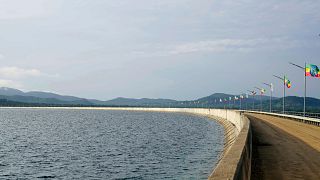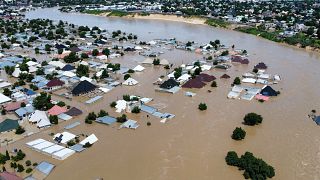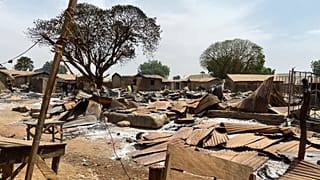Floods
On Tuesday, September 10, the collapse of the Alau Dam in northern Nigeria intensified the ongoing flooding across West and Central Africa. T
The dam, located 20 kilometers from Maiduguri, Borno State’s capital, failed after weeks of heavy rain, submerging parts of the city and destroying thousands of homes in an area with nearly one million residents.
The collapse has caused 30 deaths and displaced around 400,000 people, adding to the severe impact of the floods in Nigeria. As of September 6, the UN had already reported over 200 deaths and 225,000 displacements. Borno State remains one of the most affected regions.
The floods have also destroyed schools, health centers, and businesses, bringing economic activity in Maiduguri to a halt. The situation has worsened the existing humanitarian crisis in a region already suffering from the Boko Haram insurgency.
With rains continuing and 50,000 people still in displaced persons camps in Maiduguri, aid efforts are being hindered by insecurity in the area, making the situation even more challenging.












01:04
Cyclone Gezani: At least 36 killed, hundreds injured in Madagascar
02:00
Morocco floods: 150,000 now displaced as waters keep rising
00:39
Morocco still battling disastrous floods, rescue efforts underway
00:55
Morocco flood disaster: Ksar El Kebir underwater as 140,000 forced to flee
01:00
Spain floods: Storm Leonardo forces 4,000 evacuations in Andalusia
01:16
Britain sanctions six over atrocities and arms support in Sudan War